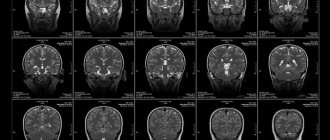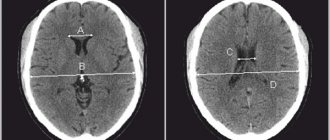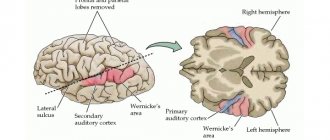There are people who are not only afraid to undergo diagnostics, but also to visit doctors in general. We usually delay visiting a medical professional for fear of identifying a dangerous disease. However, you should not postpone the appointment, because this will only worsen your health situation. Previously, there were a large number of myths about magnetic resonance imaging, which drove into people’s heads that diagnostics using such equipment was something scary. Those who did not know were afraid to undergo the scan because they thought they would have to lie in a closed booth for a long time without light in the presence of loud noise.
It is much more difficult for patients with claustrophobia to be examined. This condition is not considered an absolute contraindication to MRI, since the diagnostic value of testing justifies the discomfort during the session. The fear of doing tomography in children and adults is not considered a rare phenomenon in medical practice, but we will now tell you how to overcome it.
MRI can be performed without a doctor's prescription
This is true.
The MRI machine does not have a harmful effect on human health, so the patient can apply for an MRI study himself if something bothers him, but he has not received a referral for the study from a doctor.
However, it is worth thinking about what is the point of conducting this research? To make a correct diagnosis, you need to accurately determine the area of study. For example, pain in the legs occurs for various reasons: diseases of the lumbar spine, hip joints, blood vessels, or diabetes mellitus.
Only the attending physician can determine the type and area of research after a careful examination and thorough analysis of the patient’s complaints. Without a doctor's direction, the patient may make a mistake and do the wrong test.
Before coming for a test without a doctor’s referral, we recommend weighing the pros and cons.
Pros:
- Most likely, nothing will be found out about you, and you will be able to calmly enjoy your life further.
- You will receive a research result that may be useful. If health problems arise in the future, taking pictures in a state of relative health will help doctors more accurately and quickly diagnose and prescribe treatment. Doctors will have the opportunity to compare images and track the dynamics of changes. For example, there are congenital characteristics that cannot always be accurately distinguished from diseases the first time. And if a doctor sees the same thing in a picture taken 10 years ago, then most likely these are not pathological changes, but congenital features.
- In very rare cases, the patient's concern is confirmed, and during the examination, serious diseases are found that require treatment.
Minuses:
- Most often, patients’ concerns are unfounded, and performing an MRI without a doctor’s referral makes no sense.
- Minor changes may be detected that are not clinically significant. But the very fact of their presence negatively affects the mood and sometimes the psyche of the patient. Instead of enjoying life, the patient falls into hypochondria, starts visiting all the doctors and taking unnecessary medications.
Briefly about MRI
Magnetic resonance imaging is a highly informative diagnostic procedure that is performed non-invasively and does not cause pain in the patient. However, some people who are new to CT scans report fear that prevents them from relaxing and remaining still during the scan. During the preparatory period, the doctor explains to the patient how not to worry when diagnosing using closed-type equipment. In some cases, open-plan equipment is used, but not all clinics have such devices, and the quality of the results is inferior to the first type.
Electromagnetic tomography is performed without the use of radiological radiation, therefore it is absolutely safe for the patient’s health. Screening results can visualize hidden pathologies that did not even provoke symptoms in the patient. The images are issued in electronic or printed form with a detailed examination report. You can select medical centers in a specific area or near a specific metro station, find out the current prices for MRI and make an appointment at a discount remotely.
If you have a headache, you should definitely do an MRI of the brain.
Most often, patients who are bothered by headaches come for MRI of the brain. But in 80% of cases it is a tension headache associated with stress, fatigue, neck muscle tension, scalp tension, etc. None of this can be seen on an MRI. Such patients turn out to be healthy from an organic point of view: they have no changes in the substance of the brain. And their headaches should be treated by neurologists and cephalologists. Using MRI, you can exclude possible tumors, strokes, developmental features, anomalies, etc., but finding and treating the cause of the headache is the task of other specialists.
How to choose a clinic for MRI?
Use the search and information service to select a medical center based on specific criteria in a few minutes. The portal contains a list of clinics that perform magnetic resonance scanning using open and semi-open circuit devices, with and without contrast. Additionally, on the service you will find out the following information about specialized institutions in Moscow:
- rating;
- schedule;
- level of qualification of medical staff;
- price lists;
- stock;
- technical parameters of the equipment;
- visitor comments;
- information about the admission of children;
- photos.
Call the resource hotline for advice on issues of concern, clarification of the addresses of the nearest diagnostic organizations, as well as current prices for MRI. Registration for examination is open daily from 8 am to 12 midnight. To track your reservation, service news and bonus offers from partners, register in your personal account using your phone number.
An MRI machine is a confined space
Typically, patients are worried before the test because they are afraid of being in a confined space. In fact, an MRI machine is a kind of pipe where there is air, fans, lighting and communication with a doctor. Once the patient is there, he realizes that he is in an open space and his fear disappears.
There are certain groups of people, for example, combatants, with whose claustrophobia nothing can be done. For such patients, we offer another imaging method: computed tomography or open tomography.
How to prepare for an MRI?
Firstly, to stop being afraid of an MRI examination, the patient should learn as much as possible about this procedure. After familiarizing yourself with the procedure algorithm and verifying the competence of the radiologist, the patient will feel more confident during the scan.
Secondly, the best way to overcome fear is to make sure it is groundless. The day before the procedure, the patient can discuss their concerns with loved ones or write them down on a piece of paper. For example, if a patient is afraid that his condition will worsen in a tomograph, but they will not help him, it is obvious that the patient is worrying in vain, because such a situation is completely excluded. The study must be monitored by an MRI operator and a radiologist.
Thirdly, immediately before entering the scanning room, the patient can ask the doctor questions that concern him.
Over the years of operation of our center and the huge number of studies conducted in our practice, there have been one or two cases when the x-ray technician was forced to interrupt the MRI study. Taking into account that the number of successfully performed procedures runs into tens of thousands, we should pay tribute to the professionalism of our specialists. They readily answer patients' questions and offer encouragement to those who need it. For maximum comfort, we also offer visitors to our center special headphones to muffle the noise from the tomograph. It is important to note that in our MRI machine the tunnel is ventilated and illuminated (not every tomograph model has such options).
MRI examination is an absolutely safe and painless type of radiation diagnostics. Let us emphasize once again that there are no objective reasons to worry about the examination. Fear before or during the procedure is just a consequence of unjustified anxiety in patients. We recommend that visitors to our center trust real professionals.
We also recommend that you read the article “How to overcome the fear of MRI”.
MRI is harmful to health
The operating principle of the device is based on magnetic fields, and the research process is safe from the point of view of ionizing radiation - it is absent . There is simply no harmful radiation. Unpleasant sensations during the examination are caused by the need to lie still, sometimes for quite a long time. But for the sake of your health, it’s worth being patient, because MRI is one of the most informative methods for studying and diagnosing diseases of the central nervous system, human musculoskeletal and joint systems, etc., which means it helps to make an accurate diagnosis and prescribe the correct treatment.
How to get an MRI?
An anxious patient may also be advised to take a sedative 30 minutes before the procedure (if he or she will not be driving). Please note that strong drugs that cause drowsiness should not be taken: the patient’s sleep during an MRI is undesirable, especially during head examinations. After all, falling asleep is sometimes accompanied by snoring or involuntary twitching of the facial muscles.
It is worth remembering that even slight movements of the patient can lead to the appearance of motion artifacts that degrade the quality of the images. In addition, when examining the abdominal organs and retroperitoneal space, it is necessary to follow the operator's instructions (for example, hold your breath).
In some cases, the patient needs to stay in the tomograph tunnel for a long time (about 40 minutes). The only inconvenience that the patient may experience in this regard is the need to remain motionless in the tomograph. Patients are often afraid that they will not be able to lie still for a long period, and any movement will lead to the appearance of artifacts. Indeed, it is extremely important to remain still during the examination, therefore, in our opinion, the patient should psychologically prepare himself for the MRI in advance.
The contrast agent has many side effects
Sometimes, for research, patients are given an intravenous drug containing the metal gadolinium. It helps to better visualize certain structures; by the accumulation of this drug in tissues, you can track the presence of tumors, their prevalence, etc. This drug is much safer than the one used in computed tomography. The risk of an allergic reaction is minimal.
The contrast agent, like all medications, has possible side effects, but in general it is hypoallergenic, well tolerated by patients, and most importantly, it increases the accuracy of diagnosis.
The administration of such a drug may be contraindicated only in patients with renal failure, who must notify the doctor about their disease. In such cases, the patient will first have to take a blood test, based on the results of which a decision will be made on whether to administer the drug.
Are there any prohibitions on MRI?
Despite the maximum safety of the technique, there are a number of prohibitions on hardware scanning:
- implanted metal implants that cannot be temporarily removed;
- electronic stimulators that support life activity;
- contrast during pregnancy;
- the initial period of gestation (the first three months) to exclude any external influence on the developing child;
- identified allergic rejection to the components of the coloring preparation;
- mental, neurological disorders.
During the procedure, be sure to calm down and overcome fear. Before the MRI, as soon as the patient has arrived for the session, you can ask the laboratory assistant to give a sedative or discuss the issue of general anesthesia. Stillness and calm are the main conditions for obtaining correct images on a tomograph.
The presence of any metal implants is a contraindication for MRI
The only absolute contraindication to MRI is the presence of a pacemaker or cochlear implant. The presence in the patient's body of metal prostheses and implants, plates, surgical staples, vena cava filters, stents, dental pins, braces and other metal objects is not a contraindication to MRI.
Conducting research is possible. Difficulties may arise with visualizing tissues and organs around a metal object, but this does not pose a danger to the life and health of the patient. It is necessary to inform the doctor about the presence of metal in the body, but conducting a study is most likely possible.
What do you need to know about MRI in order not to be afraid of this study?
Magnetic resonance imaging (MRI, MRT, MRI) is a tomographic method for studying internal organs and tissues using the physical phenomenon of nuclear magnetic resonance.
This method is based on measuring the electromagnetic response of the nuclei of hydrogen atoms to their excitation by a certain combination of electromagnetic waves in a constant high-strength magnetic field. MRI is a very valuable method for diagnosing malignant tumors. But is it really safe?
The Internet and “paper” media periodically publish various “horror stories” that MRI is almost a microwave oven that causes irreparable damage to health.
This is far from true. MRI, like any other research method, has its limitations associated specifically with the “physics” of the process. But nothing more.
Let's consider contraindications to MRI.
Contraindications to MRI are based on the fact that the MRI scanner generates powerful magnetic fields that affect any ferromagnetic objects, which leads to heating of these objects. MRI with high magnetic field strength. Only such conditions require a special approach to safety.
All implants installed in the body of the subject are ferromagnetic if they are made of steel.
Ferromagnetism is a phenomenon observed when a material has the ability to spontaneously magnetize - the presence of a magnetic moment in the absence of a magnetic field. Such materials make up permanent magnets (for example, those that we hang on the refrigerator), as well as some useful things for surgery and traumatology (fixators, joint prostheses, knitting needles, screws, etc.).
Substances in which ferromagnetic ordering of magnetic moments occurs are called ferromagnets. These include crystals of transition metals (iron, cobalt, nickel), some rare earth elements and a number of alloys, ferrites, as well as some metallic glasses.
Titanium clips of different sizes and metal dentures
Small metal surgical implants pose a particular danger - patients often either simply do not know about them or forget about their presence. Usually these are hemostatic clips or staples from stapling devices that could be used (if, of course, the patient has previously undergone surgery). Parentheses are usually not dangerous. The most they are capable of is heating. You should be more careful with clips, especially those left in the brain. Such clips can become dislodged, which is a real risk during MRI studies of the head. In the rest of the body, the risk is minimal, since after a healing phase of 6-9 weeks, fibrosis and burstation of the clip or staple fixes it in a stable position.
Stents for arteries
The risk of MRI with coronary stents depends on the material from which the stent is made. Most materials used to make stents are not ferromagnetic, and in this case there is no risk.
Osteosynthesis, joint prostheses and pacemakers (pacemakers)
It is this category of patients that requires special attention. Be that as it may, today the following are considered absolute contraindications to MRI:
Electrically, magnetically and mechanically active implants Ferromagnetic or electronically controlled active devices, such as an automatic defibrillator-cardioverter Artificial pacemakers
Such patients should not undergo MRI, or the examination should be carried out according to the strictest indications. The presence of a pacemaker remains a strict contraindication.
Relative contraindications to MRI:
- Cochlear implants
- Insulin pumps and nerve stimulators
- Steel or similar wires/wires/spokes
- Hemostatic clips (body scan)
- Non-ferromagnetic stapedial implants (this is in the ear)
- Pregnancy (it is recommended to avoid MRI in the first 3 months of pregnancy)
- Claustrophobia
- The need for artificial ventilation of the lungs (they say that somewhere there may be special equipment that can be shoved into an MRI scanner along with the patient, but we have not seen this yet)
Special mention should be made about tattoos.
Some inks use titanium dioxide, and body scanning can cause the tattoo area to heat up and cause severe pain. In this case, the study should be stopped immediately.
How to get an MRI if you have claustrophobia
We often hear from our patients that they tried to undergo research in other clinics, but when they had a panic attack, no one gave them time to prepare, come to their senses, and calm down. Those. The reception follows the principle: “Either lie down and do it, or go somewhere else.” Of course, it is much easier to work with a patient who is not afraid of anything, nothing hurts or bothers him. But the job of doctors, first and foremost, is to help! And it doesn’t matter how much effort and time it takes. We try to help by choosing an individual approach to each person. After all, for us, patients are not faceless units, but people! Each with their own pain, their own worries and problems. That is why our patients in 99% of cases undergo all the necessary tests with us... And their grateful reviews are the best confirmation of this:
“I, Igor Valerievich Ts., was at the reception on April 11, 2019. I had an MRI with Daria Nesterova, I was very pleased with the professionalism and humanity! Suffering from claustrophobia, I enjoyed the procedure thanks to Daria Nesterova. Before this, I had an MRI in three places, where I refused to do the procedure. I will definitely come back to you again, I need to do 3 more procedures” Tsiglyaev I.V. 04/11/2019
“I express my deep gratitude to Daria Alekseevna Nesterova for her sincere and cordial approach to us when visiting the clinic!!! If it weren’t for her professionalism and approach to patients, I would not have been able to undergo the procedure (there were attempts to overcome claustrophobia in several other clinics). But only with the help of Daria Alekseevna I managed to go through the procedure. Low bow to her!!!" Kalinina O.K. 10/06/2018
If you are afraid, if you are not ready to undergo an MRI on a closed tomograph, if a child needs to be examined and you want to be present, we are waiting for you! Come and see that even with claustrophobia you can undergo an open MRI in comfort!
*All reviews given in this article are real and posted in the “Book of Complaints and Suggestions” of Modern Diagnostics Clinic LLC. All patients can read reviews and leave their own during any visit to the clinic.











